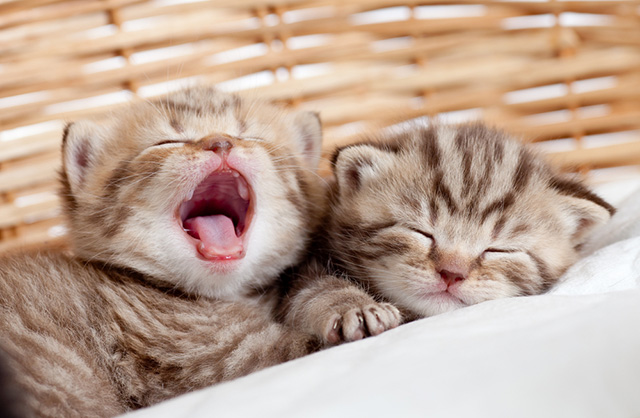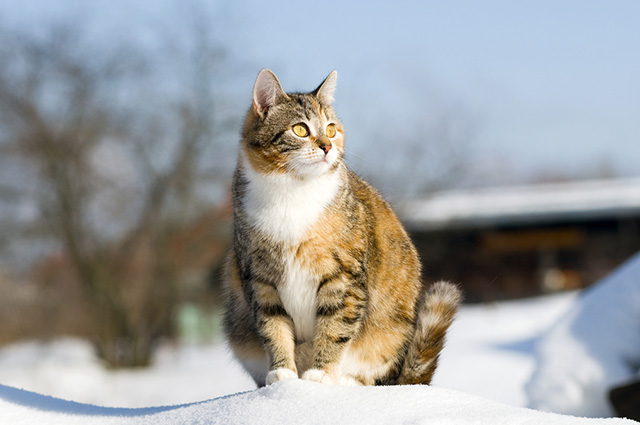Feline Panleucopaenia is a very serious disease of cats which carries a high risk of mortality especially in young cats and kittens. The virus is very similar to the one that causes parvovirus in dogs and indeed recent parvovirus strains of dogs have been shown to infect cats, however, generally does not cause disease, unlike the potentially fatal consequences in dogs.
Who is at risk of Feline Panleucopaenia?
All unvaccinated animals at at risk of contracting the disease, but young kittens are particularly susceptible.

How is Feline Panleucopaenia spread?
Infected cats pass the virus in their urine and faeces for a maximum of six weeks. The virus persists in the environment for long periods over many months or even years and is resistant to many cleaning products and disinfectants. For these reasons, contact with a contaminated environment is the most likely source of infection. Kittens may also be infected inside the womb by the virus passing across the placenta from their mother, if she is infected while pregnant.
What are the signs and symptoms of Panleucopaenia?
Panleucopaenia causes severe vomiting, anorexia and fever. Sometimes the disease can progress so quickly that a kitten may die before the owner even notices any signs, ‘fading kitten syndrome’.
The disease may initially be mistaken for foreign bodies stuck in the gut or poisoning. Kittens deteriorate very quickly because once they stop eating and drinking, they become severely dehydrated.
Older cats tend to show less severe signs and, if queens are infected whilst they are pregnant, they often show no signs of illness. The unborn kittens, however, can be infected inside the womb and this may lead to their death ‘in-utero’ or damage to their developing brains.

What is the treatment for Panleucopaenia?
Treatment of cats with Panleucopaenia is typically supportive often including intravenous fluids and antibiotics. Without intensive nursing, many cats can die from the effects of the disease.
What are the recovery rates from Panleucopaenia?
Cats that survive more than five days without developing complications have a better chance of recovery although frequently it takes several weeks for this to occur. If a cat recovers from panleucopaenia, it is highly unlikely that they will catch the disease again.
How do I prevent my cat getting Panleucopaenia?
Most cat vaccines on the UK market includes panleucopaenia as one of the diseases it protects against and is recommended for all cats as part of their regular healthcare. Boosters are required to maintain immunity and it is particularly important that queens are up-to-date before any planned breeding. One of the vaccines on the UK market has been shown to cross protect against the canine Parvo strains that can cause panleucopaenia and prevent shedding of the virus from the cat which can then infect dogs.
